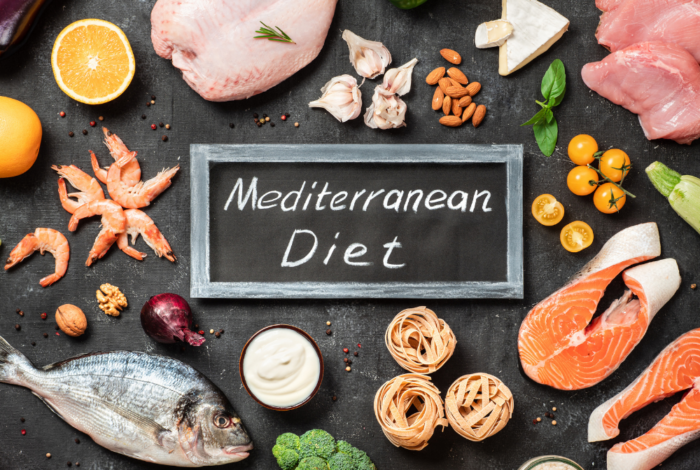Seasonality and dietary diversity are fundamental aspects of the traditional Greek Mediterranean diet.
In the past, scarce means of preserving food and the difficulty of transporting goods led the Greek people to eat whatever was available during each season of the year. The lack of advanced methods of food preservation/storage and the limited capability of transporting products meant that Greek communities relied on fresh, locally available foods they could cultivate or obtain nearby.
That meant that in summer, for example, they ate season’s fruits and vegetables, such as tomatoes, cucumbers, eggplant, courgettes, peaches, watermelon and others. The selection of season’s foods is reflected in the classic Greek recipes that also have a seasonal character. For example, the classic Greek salad (horiatiki), stuffed vegetables and eggplant dip – dishes that highlighted foods available in summer – were more common, and continue to feature prominently in the Greek diet during the summer. These recipes made the most of the fresh ingredients available.
Selecting foods based on their seasonality ensures the best possible flavour and quality. Seasonal foods are usually harvested at the peak of their maturity, when they have the best flavour and highest nutritional value (i.e. highest nutrient content).
Additionally, the selection of locally grown fresh products supported the local economy and contributed to environmental sustainability. The use of local, seasonal products reduces the need to transport food over long distances, which helps to reduce carbon dioxide (CO2) emissions and other greenhouse gases generated by means of transport.
Another benefit is that the seasonality of the traditional Greek diet provides variety in the foods consumed and eliminates dietary monotony. This is particularly important, as our need for nutrients varies from season to season. For example, summer fruits and vegetables, such as watermelon, melon and cucumber, have a higher water content, which helps us to meet our increased need for hydration during the hot summer months. Similarly, the citrus fruits widely available in winter, such as oranges and mandarins, are rich in vitamin C, which helps boost our immune system and protect against winter viruses.
In a nutshell, including seasonal foods in our diet and the resulting dietary diversity, as promoted in the Greek Mediterranean diet, has numerous benefits. This approach contributes to improved dietary habits, it supports local producers and markets, while also having a smaller environmental impact and promoting both our own health and that of our planet.










